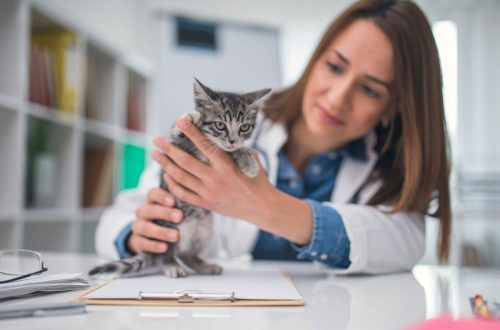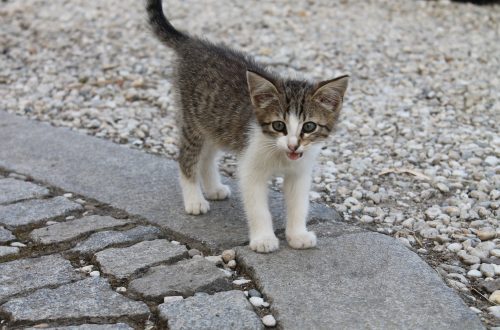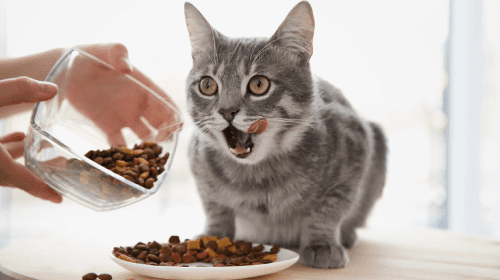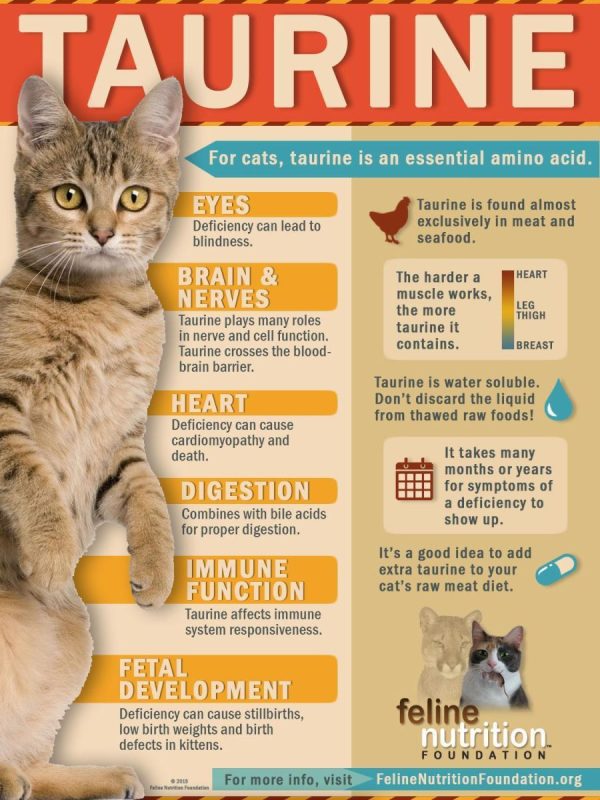
Taurine for cats – what is it and why is it needed?
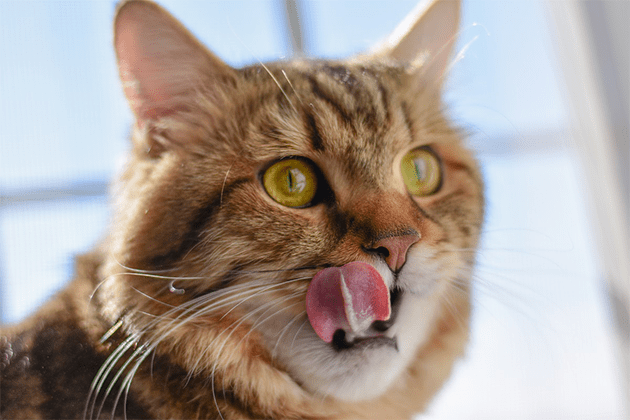
Taurine is a vital sulfonic acid (sulphur-containing), which is extremely important for the health of a cat, but at the same time cannot be synthesized in the body of a cat. Consider what taurine is responsible for and how to make up for its deficiency in the body of a domestic cat.
In nature, cats obtain taurine exclusively from the meat and organs of their prey. Taurine was isolated from the bile of cattle (taurus (lat.) – bull) in 1826 by German chemists Friedrich Tiedemann and Leopold Gmelin.
Contents
Taurine in the cat’s body is responsible for several functions at once:
- Vision – taurine maintains the retina in a healthy state. With a lack of taurine, taurine-associated central retinal degeneration and blindness develop.
- Cardiac activity – taurine supports the normal functioning of the heart, with a lack of taurine in cats, the heart muscle weakens, and heart disease develops – dilated cardiomyopathy.
- Reproductive function – in pregnant cats with a deficiency of taurine, miscarriages occur, kittens die in the womb or are born with developmental defects, kittens born poorly gain weight and grow, neurological disorders may appear. Kittens receive the necessary taurine from their mother’s milk after birth.
- Immunity – with a lack of taurine, immunity in general is reduced, and unvaccinated cats get sick more easily.
- Digestion – Supports digestion by aiding in the breakdown and subsequent digestion of fats from food.
- Supports the activity of the nervous system
With a natural cat diet, a cat can get taurine from fresh raw meat and poultry, and by-products – the heart, stomach, liver, kidneys, as well as from raw seafood and fish, but taurine is partially destroyed when frozen and cooked. If the cat eats natural food (raw lean meat, rice or oatmeal, vegetables in very small quantities to get carbohydrates and fiber and normal functioning of the digestive tract, not often – dairy products and eggs) – you should carefully choose meat for the cat – both fresh and frozen – buy meat in trusted places and monitor its freshness and quality, and vitamin supplements with taurine can help make up for the lack of taurine. However, a natural diet for cats should be compiled with the participation of a veterinary nutritionist, taking into account the individual characteristics and needs of a particular cat, it can be difficult to accurately balance nutrition on your own, and not harm the lack of one and an excess of other substances. When feeding ready-made dry and wet foods, taurine is contained in the composition as a supplement, and it is not necessary to give it additionally. If desired, it can be given as a treat – there is practically no risk of an overdose of taurine, the excess is excreted in the urine without being deposited in the body. Only in chronic diseases of the kidneys, liver and gastrointestinal tract, as well as during an exacerbation, the use of additional taurine supplements may not be desirable, and should be agreed with a veterinarian.
Taurine deficiency can occur when:
- Unbalanced nutrition with natural food (frozen or boiled meat and fish, feeding one type of meat all the time)
- Inappropriate food for cats (cereals, soups, pasta, bread and other food from the human table that cannot be “natural food” for a cat).
- Feeding cats with dog food (there is practically no taurine in dog food, since dogs do not need to get it from food, it is synthesized in the body on its own)
What treats and supplements with taurine can be offered to a cat:



